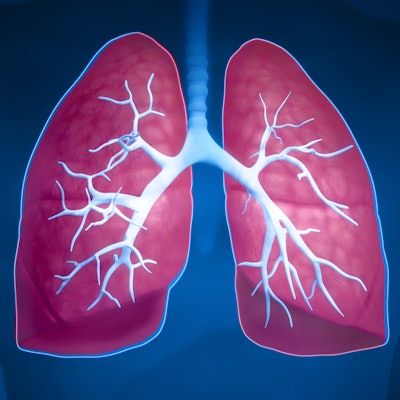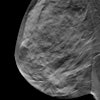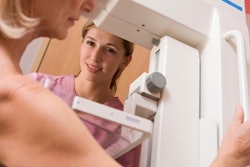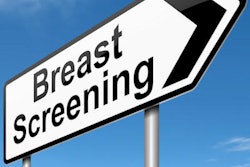
Breast cancer screening offers radiology practices the opportunity to encourage women to get screened for lung cancer and receive smoking cessation counseling, according to research delivered at the RSNA 2018 meeting.
In fact, mammography screening could be a key component to improving women's overall health, said presenter Diego Lopez of Harvard Medical School in Boston.
"Large numbers of women over 40 presenting for mammography screening represent important opportunities for radiologists to impact population-based health outcomes," he told session attendees.
Lung cancer is the leading cause of cancer-related mortality in the U.S., and lung cancer screening with low-dose chest CT has been shown to reduce mortality from the disease, Lopez said. But are eligible women getting screened?
To estimate the prevalence of women undergoing mammography screening who were also eligible for CT lung cancer screening and smoking cessation counseling, Lopez and colleagues analyzed data from the 2015 National Health Interview Survey (NHIS) for 5,436 women between the ages of 55 and 74. The survey is conducted annually to track healthcare and health behavior trends nationwide, Lopez said.
The researchers chose this particular age range because it reflects an overlap in guidelines from the U.S. Preventive Services Task Force (USPSTF) for lung and breast cancer screening; they noted metrics such as the women's insurance status, income, education, and other self-reported demographics, including race/ethnicity.
The group found the following:
- 68% of women reported having had screening mammography within the previous two years; 7.6% of them were eligible for lung cancer screening based on pack-year history. "This represents about 1.74 million women nationwide," Lopez told session attendees.
- Women eligible for lung cancer screening tended to be white, younger, and not college-educated.
- Of the 7.6% of women eligible for lung cancer screening, 57.3% had undergone screening mammography in the past two years.
- Of the 7.6% of women eligible for lung cancer screening, 92.5% did not receive it.
- Among women who underwent screening mammography within the past two years, 10% currently smoked and would benefit from tobacco cessation counseling.
Many women who participate in mammography screening are eligible for CT lung cancer screening or tobacco cessation counseling but are not receiving those services, Lopez noted. And that's where radiology could make a difference, he said.
"Our results suggest unique opportunities for radiology practices to partner with primary care practices to improve population-based imaging and nonimaging-based health outcomes beyond the typical purview of radiology," he concluded.




















